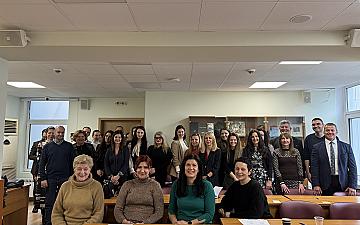In an era where information is abundant, the topic of healthy eating is often discussed and sometimes misunderstood. With various articles, blogs, and social media influencers advising on what to eat and what to avoid, it can be challenging to separate fact from fiction. Young people often fall victim to misinformation that leads to serious health problems. Let's look at some common myths and facts about healthy eating based on internet research.
Myth: Carbohydrates are bad for you.
Fact: Carbohydrates are an essential part of a balanced diet. They provide the body with energy and are necessary for body and brain functions. However, it's important to choose complex carbohydrates such as whole grains, beans, and fruits, which are rich in fiber and essential nutrients.
Myth: Fat should be eliminated from your diet.
Fact: Fat is an essential macronutrient that plays a crucial role in various body functions. Unsaturated fats, like those found in avocados, nuts, and olive oil, can be beneficial for heart health.
Myth: All calories are the same.
Fact: Different foods have different effects on hunger, metabolism, and overall health. Highly processed foods and sugary beverages may be full of calories, but lack essential nutrients, leading to overeating and poor nutrition. Opting for nutrient-dense foods such as fruits, vegetables, proteins, and whole grains can help feed your body, while maintaining a healthy weight.
Myth: You need to follow a specific diet to be healthy.
Fact: There is no universal diet. Each person has unique nutritional requirements depending on age, gender, activity level, and health conditions. The popular diets may have only short-term benefits.
Myth: You must give up all your favorite foods.
Fact: Healthy eating does not mean stopping your favorite foods. The key is to eat them mindfully and balance them with nutritious meals.
In conclusion, comprehending all the information about healthy eating available online can be a challenge. By revealing these common myths and understanding the facts, we can make informed choices about our nutrition.









